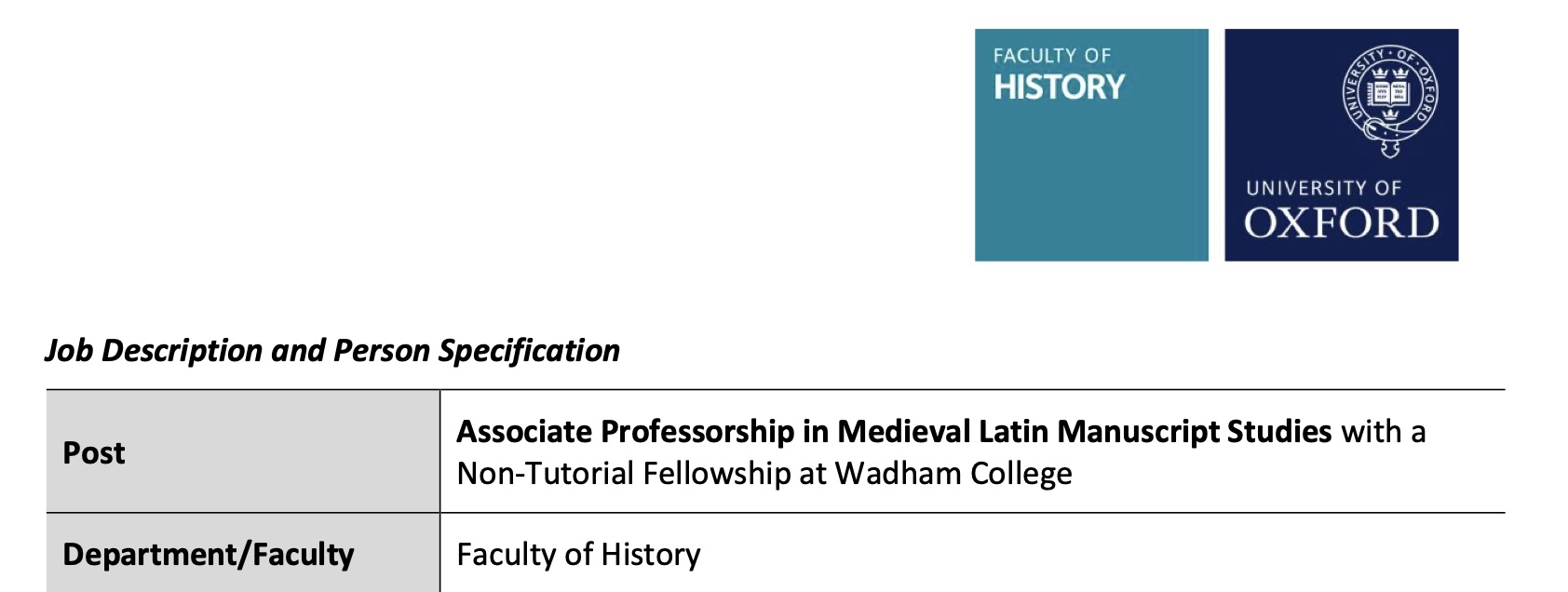When? 26 April 2025, 12noon-5.30pm. Where? St Edmund Hall, Queen’s Lane, OX1 4AR
Preparatory Meeting: 13 March 2025, 5-6.30pm, St Edmund Hall (ask at the Lodge for directions to Henrike’s office)
The days are getting longer, the sun has come out for three days in a row (!), and the flowers in Teddy Hall are starting to blossom. That can only mean one thing: the Medieval Mystery Cycle is approaching!
Less than two months from now, on 26 April, between 12 noon and 5.30 PM, the Front Quad and churchyard of St Edmund Hall will be transformed into Paradise, Golgatha, Hell, and much more, as a selection of groups from all walks of academic life will perform a collection of twenty-minute-long medieval plays based on different Biblical stories. No tickets or registrations are required — just drop in and out of Teddy Hall.
We will start at noon with ringing the chapel bell for the Creation and Adam and Eve. Leaving Paradise and exiled to Earth, we will then see the Flood and Abraham sacrificing his son Isaac. From those Old Testament stories, we will move to the New Testament, and physically from the Front Quad to Teddy Hall’s unique graveyard. There, we will witness the Annunciation and Nativity, before seeing adult Jesus in action at the Wedding at Cana. The Crucifixion (featuring a purpose-built cross!), Mary’s Lament, Martyrdom of the Three Holy Virgins, Mary Magdalene, and Resurrection will take us through Easter. Finally, the Last Judgement will conclude this day of medieval storytelling.
As always, the selection of plays and languages will be fantastically diverse, taking us from Hans Sachs’s German to Marguerite de Navarre’s French, from Hroswita of Gandersheim’s Latin to the Middle English of the Digby Mary Magdalene. Other plays will be performed in Modern English, including the world premiere of the Wedding at Cana, based on only 1.5 surviving lines in the York cycle. But worry not: all plays will be introduced by a Modern English prologue, so no language skills are required to follow along. And of course, the language of theatre is universal …
Curious? Intrigued? We are holding a meeting for all creatives and those who’d like to be one at Teddy Hall on Thursday of 8th Week (13th March), 5 PM. This will be a great opportunity to meet some of the other people involved, chat to the organisers, have a look at the performance spaces, and discuss any open questions.
Alternatively, email Sarah Ware (sarah.ware@merton.ox.ac.uk) and Antonia Anstatt (antonia.anstatt@merton.ox.ac.uk) if you have any questions or are looking for a way to get involved. In the meantime, watch this space and be on the lookout for updates to our website for the 2025 cycle, which we will update periodically as our thespians prepare to take centre stage — or, in this case, quad!











